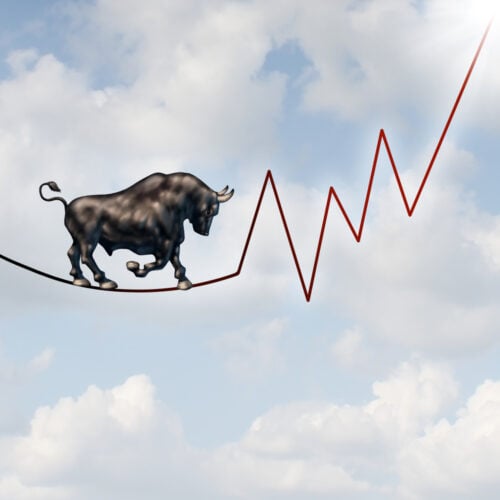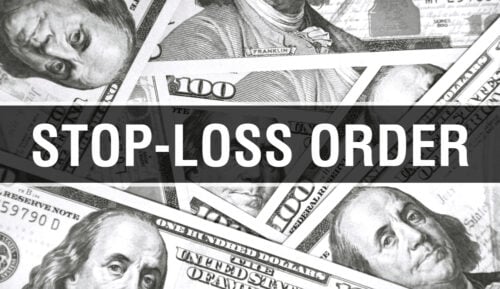Trading futures can be profitable if done correctly, but it is also risky. But are you wondering what futures are in the stock market? If you’re interested in learning more about different types of stock market futures, keep reading!
Futures in Stock Market
Futures are derivative financial contracts that allow two parties to agree to buy or sell an asset at a set contract price and future date. It’s a financial instrument that can be used for commodities, stocks, bonds, and other assets.
The party agreeing to buy the asset in the futures contract is said to be “long,” while the party agreeing to sell the futures contract is “short.”
Futures contracts are typically traded on futures exchanges, which government agencies regulate. Most major futures markets are registered with the Commodity Futures Trading Commission (CFTC), the main US regulatory body for futures.
The most well-known futures exchange in the US is the Chicago Mercantile Exchange (CME), which offers futures contracts on various assets, including commodities, stocks, bonds, and currencies.
Other major futures exchanges include the Chicago Board of Trade (CBOT), the New York Mercantile Exchange (NYMEX), and the Tokyo Commodity Exchange (TOCOM).

Types of Futures Contract
If you’re a trader who wants to participate in the stock market, you’ll need to know about futures. There are many different types of futures contracts, and each has its own unique features and risks.
Stock Index Futures
Stock index futures are futures contracts that allow investors to bet on the future direction of a particular stock market index, such as the Standard and Poor’s 500 (S&P 500).
Individual Stock Futures
Individual stock futures are futures contracts that allow investors to bet on the future direction of a particular stock.
Commodity Futures
Commodity futures are futures contracts that allow investors to bet on the future price of a particular commodity such as gold or oil.
Currency Futures
Currency futures are futures contracts that allow investors to bet on the future direction of a particular currency, such as the US dollar or the Japanese yen.

Interest Rate Futures
Interest rate futures are futures contracts that allow investors to bet on the future direction of interest rates.
Understanding Futures Contracts
Now that you understand what futures are and how they work, you may be wondering if they’re right for you. If you’re thinking about trading, there are a few things you should keep in mind.
- Make sure you understand the risks involved. Futures contracts can be volatile, and the specific price of an asset can move up or down unexpectedly.
- Do your research. Be sure to understand the asset you’re trading and the condition of the financial markets.
- Have a plan. Know what you want to achieve, and have a strategy in place to help you reach your goals.
- Stay disciplined. It’s important to stick to your plan, even when the market is volatile.
If you can keep these things in mind, you’ll be well on your way to success in the futures market.
Using Futures
One way that futures can be used is to hedge against risk. Hedging is when you take a position in an asset in order to offset the risk of another underlying asset.
For example, let’s say you own a stock portfolio and you’re worried that the market may drop. So, you decide to hedge your risks by buying a futures contract.
If the market does drop, the value of your stock portfolio will go down. However, since you’ve bought a futures contract, you’re now protected against any losses. This is because you can sell the contract at a higher set price than what you paid for it.
Hedging can be a great way to protect your portfolio from market volatility. If you’re interested in learning more about hedging, be sure to check out our other articles.

Options for futures
There are two types of options for futures contracts:
Call: A call option gives you the right, but not the obligation, to buy the underlying asset at a specific market price.
Puts: A put option gives you the right, but not the obligation, to sell the underlying asset at a specific market price.
Setting Up an Account
If you’re interested in trading futures, the first step is to set up an account with a broker that offers stock futures trading. Once you have an account, you can deposit money and start trading.
When you trade futures, you’ll be required to post a margin. This is the amount of money that you need to put down in order to open a position. The amount of margin required will vary depending on the asset you’re trading and the broker you’re using.
As the market moves, your positions will either gain or lose value. If your position gains value, you’ll make money. If it loses value, you’ll lose money.
It’s important to remember that you can lose money trading. Be sure to use stop-loss orders and never risk more than you’re comfortable with.

Risks of Trading Futures
Just like any investments, there are a number of risks involved in trading futures accounts, including:
- The risk of losing money. You can lose money if the market moves against you.
- The risk of margin calls. If the value of your account falls below the margin requirements, you’ll be subject to an initial margin call. This means that you’ll be required to deposit additional funds in order to keep your position open.
- The risk of being assigned. If you’re trading futures contracts, you may be assigned at any time. This means that you may have to take delivery of the underlying commodity and asset, even if you don’t want to.
Benefits of Trading Futures
Aside from risks, there are also a number of benefits involved in trading futures accounts, including:
- The ability to trade on leverage. When you trade futures, you can use leverage to control a larger position than you could with just the money in your account.
- The ability to short-sell. When you short-sell a specific asset, you sell it first and then buy it back later. This allows you to profit from a falling market.
- The ability to hedge. Futures can be used to hedge against risk in the stock market or in other investments.
What are Futures in the Stock Market? Final Thoughts
Futures can be a great way to invest in the stock market. They can be used to hedge against risk, trade on leverage, and short sell. With proper risk management, you can trade safely and avoid losses.
When used correctly, futures can be a great tool for investors, but it’s important to learn about the risks and benefits before trading.


 Tags:
Tags:










